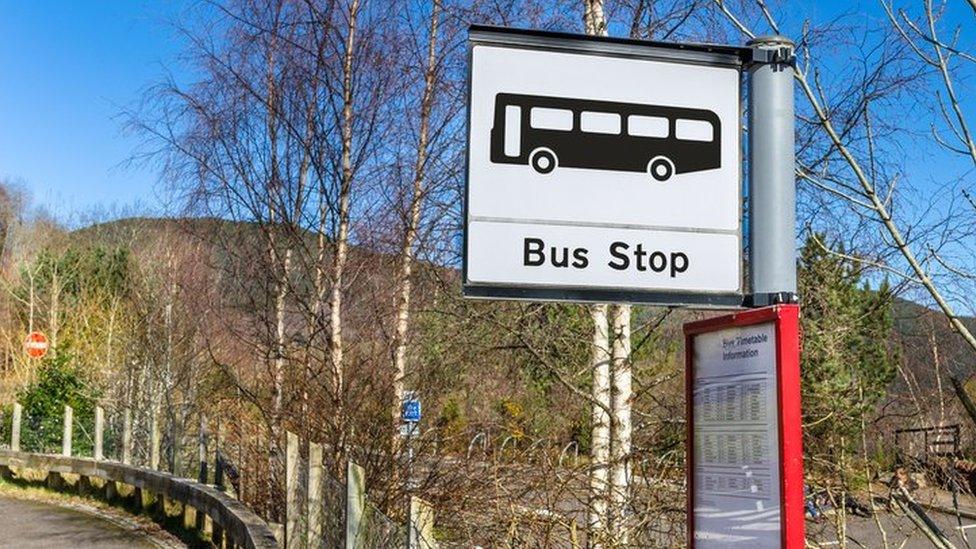Rural bus cuts blamed on rising costs and drop in passengers
- Published
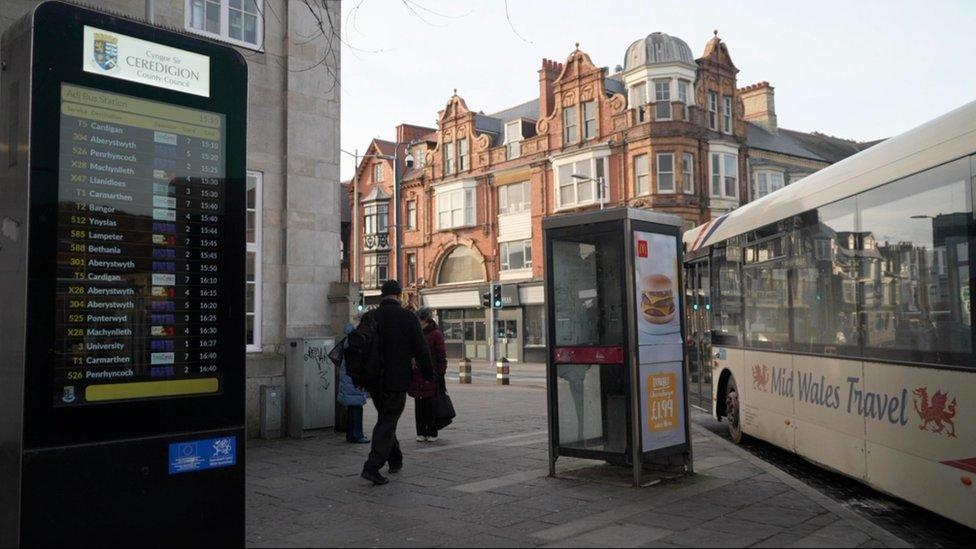
Several services have been axed or reduced in Ceredigion since the new year
Passengers have criticised cuts in rural bus services.
Ceredigion council said it was reducing or cutting services due to rising costs and budget pressures and a bus firm said it was reducing another three amid rising costs and a drop in passengers.
Industry leaders said help was needed as passenger numbers had not recovered since the Covid pandemic.
The Welsh government said it had provided £150m "to help keep essential services on the road" since 2020.
"The amount of social isolation in this area that's going on as a consequence of this is pretty desperate," said Richard Williams, who lives near Lampeter.
"I would defy anybody who's in the county council to go without their car for a week and to try and get about in this place."
Since the end of December three subsidised services have stopped: the Tregaron circular service, the Penrhyncoch to Pontrhydybeddau, and Aberystwyth to Devil's Bridge routes.
Ceredigion council said the demand services had low usage with "unviable levels of public subsidy per passenger journey".
On three other subsidised routes, buses now run less often than last year from Aberystwyth to Ponterwyd, to Penrhyncoch, and to Lampeter via Tregaron.
The council also said tenders from bus companies showed significant cost increases which led to requests for "substantial increases in subsidy levels…at a time when public finances are under tremendous pressure".
It added that the higher costs include fuel prices and maintenance costs, passenger numbers were falling, along with a change to travel behaviours, which had reduced the income of bus operators.
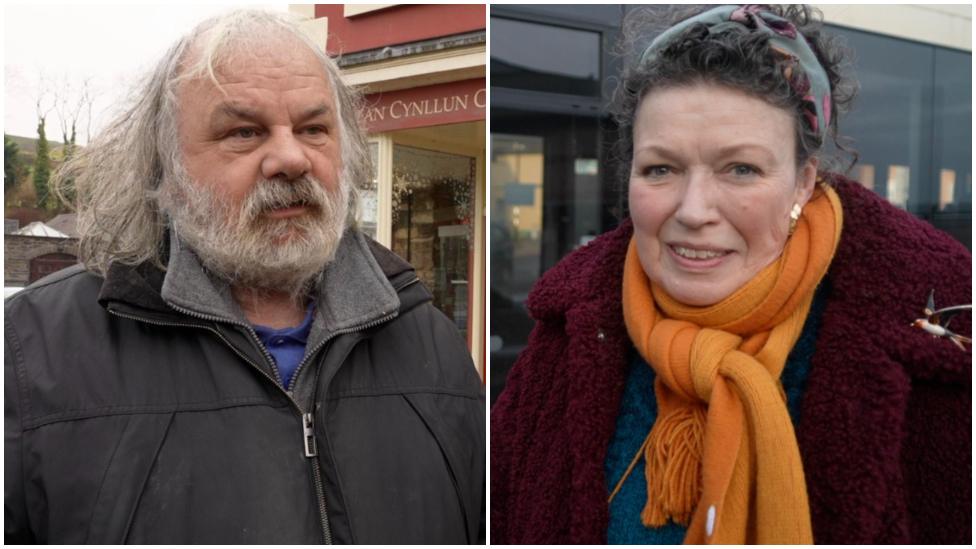
Richard Williams is worried about social isolation and and Catriona Yule said getting to medical appointments will become more difficult
Mid Wales Travel has also announced changes to three routes - which are not subsidised - from Aberystwyth town centre to the university campus, to Borth and Ynyslas, and the Penparcau circular route which will roughly halve in number.
Residents in Borth have launched a petition to oppose the cuts.
"There's a chance that the doctor's surgery is going to close as well and the thought of getting appointments that fit in with a two hour bus timetable is quite alarming," said Catriona Yule, who lives in the village.
Mel Evans, owner of Mid Wales Travel, said: "The cost of fuel, cost of maintenance, cost of wages, cost of everything has gone up.
"By cutting back a little bit, and by making these changes, we hope that we can save the services," he said.
CPT Cymru, which represents bus operators in Wales, said with funding from a Bus Emergency Scheme, external set to expire in March, it was "urgently calling on the Welsh government to provide long-term support for the sector to give passengers the certainty they deserve to plan their journeys by bus".
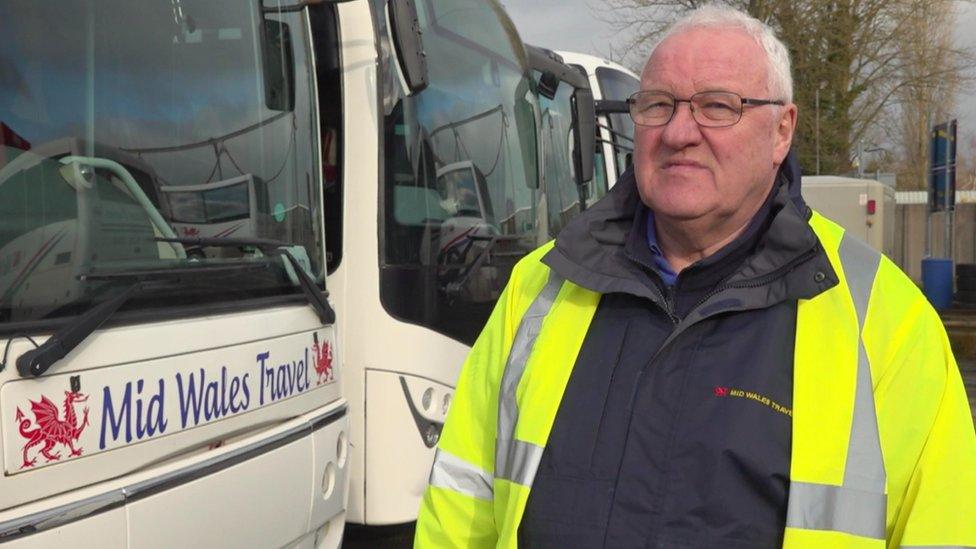
Mel Evans: "By making these changes, we hope that we can save the services"
- Published10 January 2023
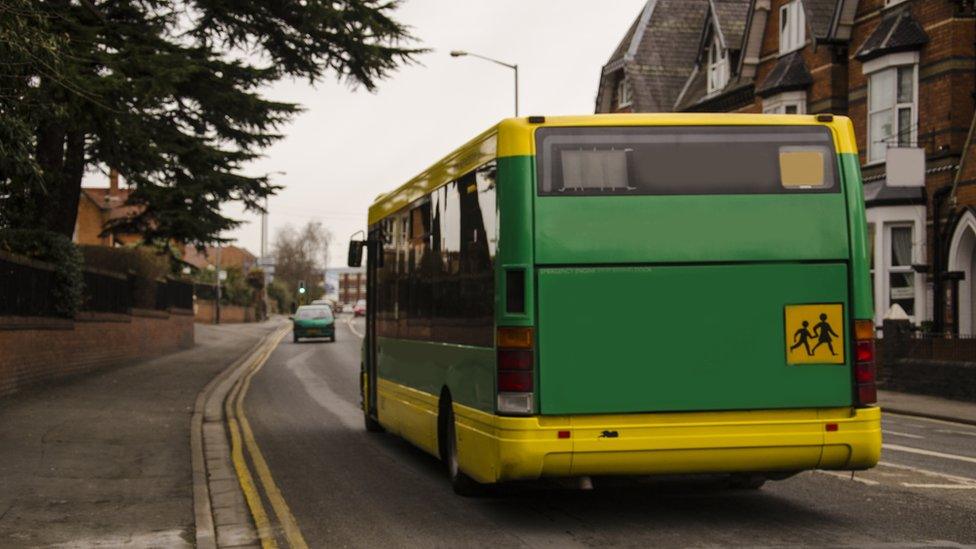
- Published31 March 2022
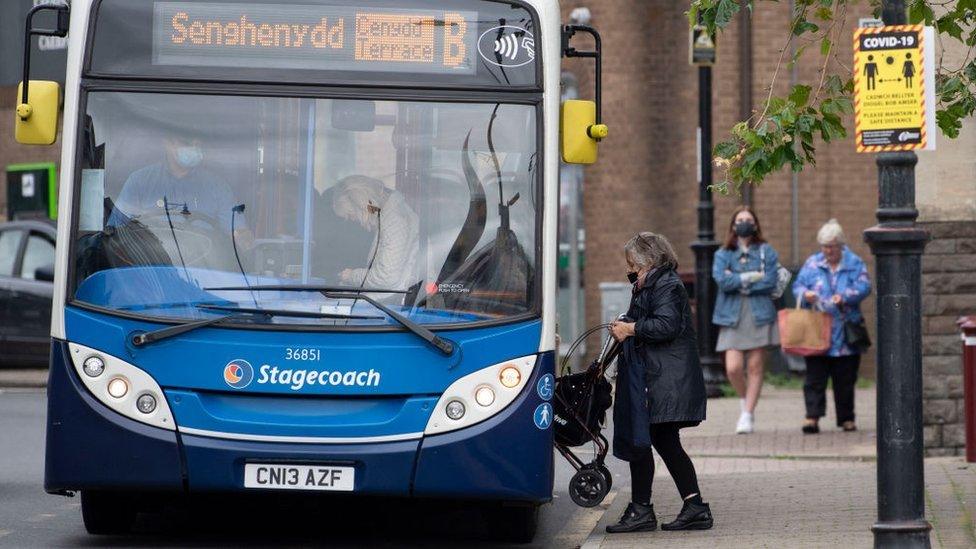
- Published23 June 2021
